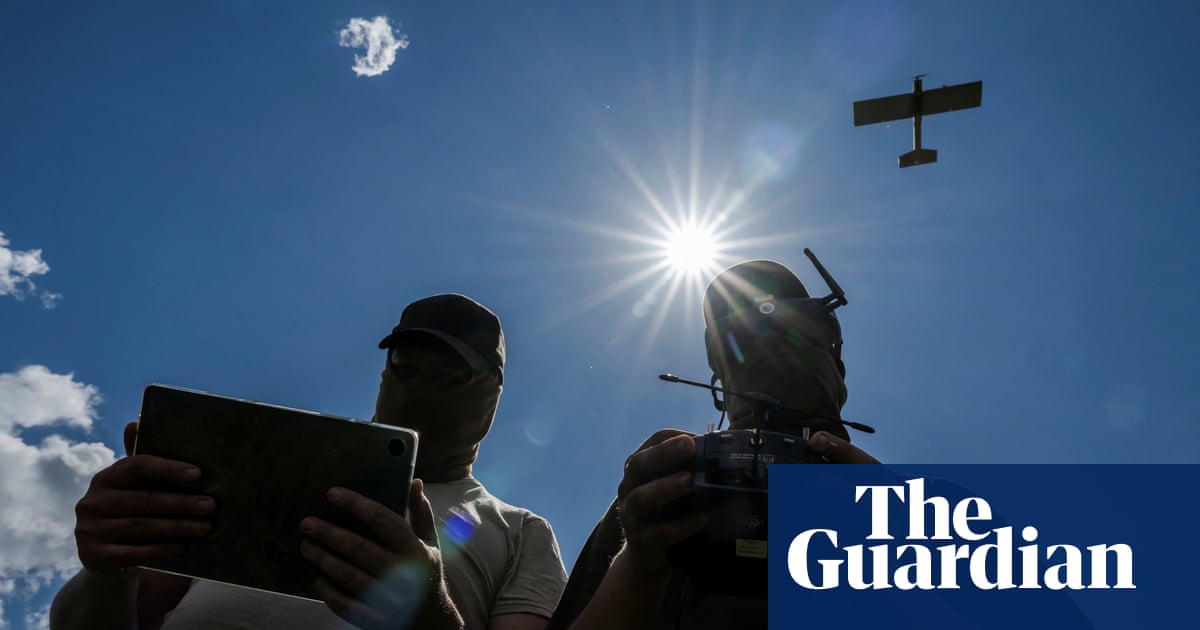Ukrainian drones targeted Moscow for the second night in a row, forcing the temporary closure of the capital’s airports, Russia’s military reported.
The consecutive attacks came ahead of Moscow marking this week the 80th anniversary of the victory of the Soviet Union and its allies over Germany in the second world war. Vladimir Putin has tried to call a three-day ceasefire for the 8-10 May anniversary; however Ukraine’s president, Volodymyr Zelenskyy, has characterised the idea as self-serving and pointless unless it lasts 30 days in line with a US proposal that Putin has ignored.
The Moscow mayor, Sergei Sobyanin, saidat least 19 Ukrainian drones approached Moscow“from different directions”. Three social media sites with links to Russian security services – Baza, Mash and Shot – said one drone struck an apartment building near a major road in the south of the capital, smashing windows. There were no reports of casualties, both they and Sobyanin said.
“Specialists from the emergency services are working at the sites where the incidents occurred,” Sobyanin said. The mayor referred to debris falling on one of the key highways leading into the city, but made no mention of a dwelling being hit.
In the Voronezh region that borders Ukraine in Russia’s south-west, at least 18 drones were reported, the regional governor said.
Russia’s aviation authority, Rosaviatsia, temporarily halted flights at all four airports that serve Moscow. Airports in some regional cities were also temporarily closed.
On Tuesday, Russia said its air defence units destroyed four Ukrainian drones on their approach to Moscow, with no damage or injuries reported. Russian authorities routinely claim, whatever the actual outcome, that all attacking drones were destroyed with damage caused only by falling debris.
There was no immediate comment from Kyiv about the latest drone attack. Ukraine says its drone attacks are aimed at destroying infrastructure key to Moscow’s overall war efforts and are in response to Russia’s continued assault on Ukrainian territory, including residential areas and energy infrastructure.
In March, 91 drones targeted the Moscow region, killing three people, causing fires and disrupting flights and train services, in Ukraine’s largest such attack on Moscow since Vladimir Putin started the war. The Russian defence ministry reported that 337 drones were launched at Russia in that wave.
On Monday, Mike Pence, the US vice-president during Donald Trump’s first term,criticised Trump for threatening to abandon support for Ukraine. Pence said: “If the last three years teaches us anything, it’s that Vladimir Putin doesn’t want peace; he wants Ukraine. And the fact that we are now nearly two months of following a ceasefire agreement that Ukraine has agreed to and Russia continues to delay and give excuses confirms that point.
“The wavering support the administration has shown over the last few months, I believe, has only emboldened Russia.”
With Reuters
